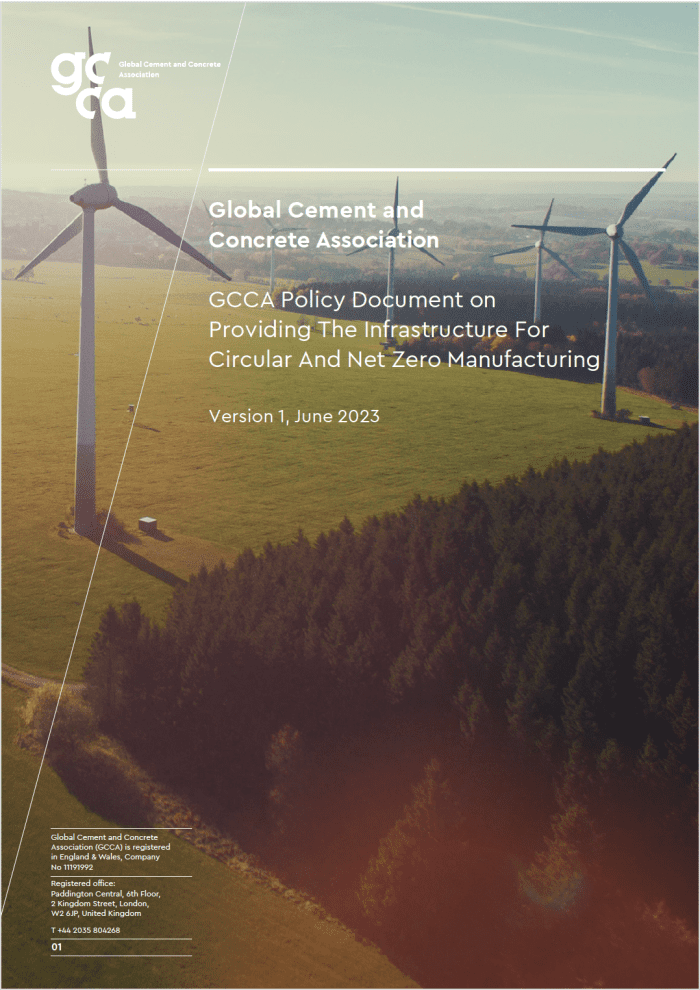Public policy plays a central role in the ability of the industry and the wider value chain to contribute to a sustainable and resilient future.
GCCA policy and position statements outline how the outcomes that both society and industry want, can be achieved through policy changes and industry action. Documents published thus far focus on climate change, circular economy and biodiversity.
To learn more about the policies, click on the key policy topics below.
Performance Based Standards
Today’s codes and standards do include some performance-based approaches , notably strength and workability, but current standards are largely prescriptive, that is, they state what materials to use, in what proportions, and under what conditions. Such examples are specified chemical and mineral compositions of cement and clinker and, in the case of concrete, minimum cement content and maximum water-to-cement ratios. While these rules provide certainty, they also create barriers to innovation and new low-carbon solutions.
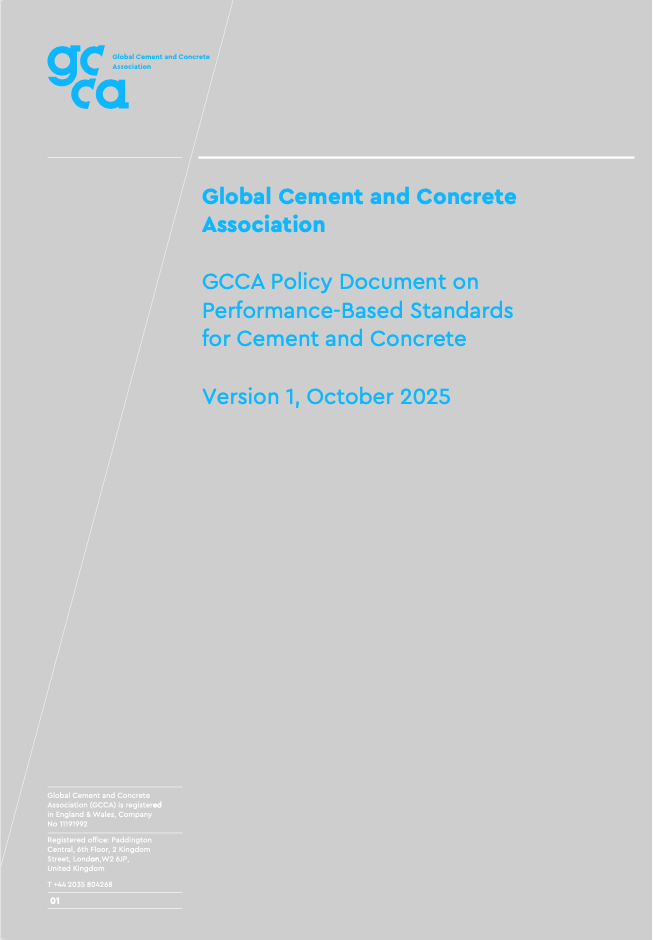
Blended Cement and Supplementary Cementitious Materials (SCMs)
Blended cements and use of SCMs in concrete are proven to reduce product carbon footprints. In some countries, the use of blended cements and SCMs on a project are already enabled through a framework of supportive policies, standards, regulations and specifications. To increase use of SCMs globally, the enabling framework must become more widely implemented and adopted. Over time, the framework must evolve and this will include updating standards and increasing the use of performance-based approaches where appropriate.
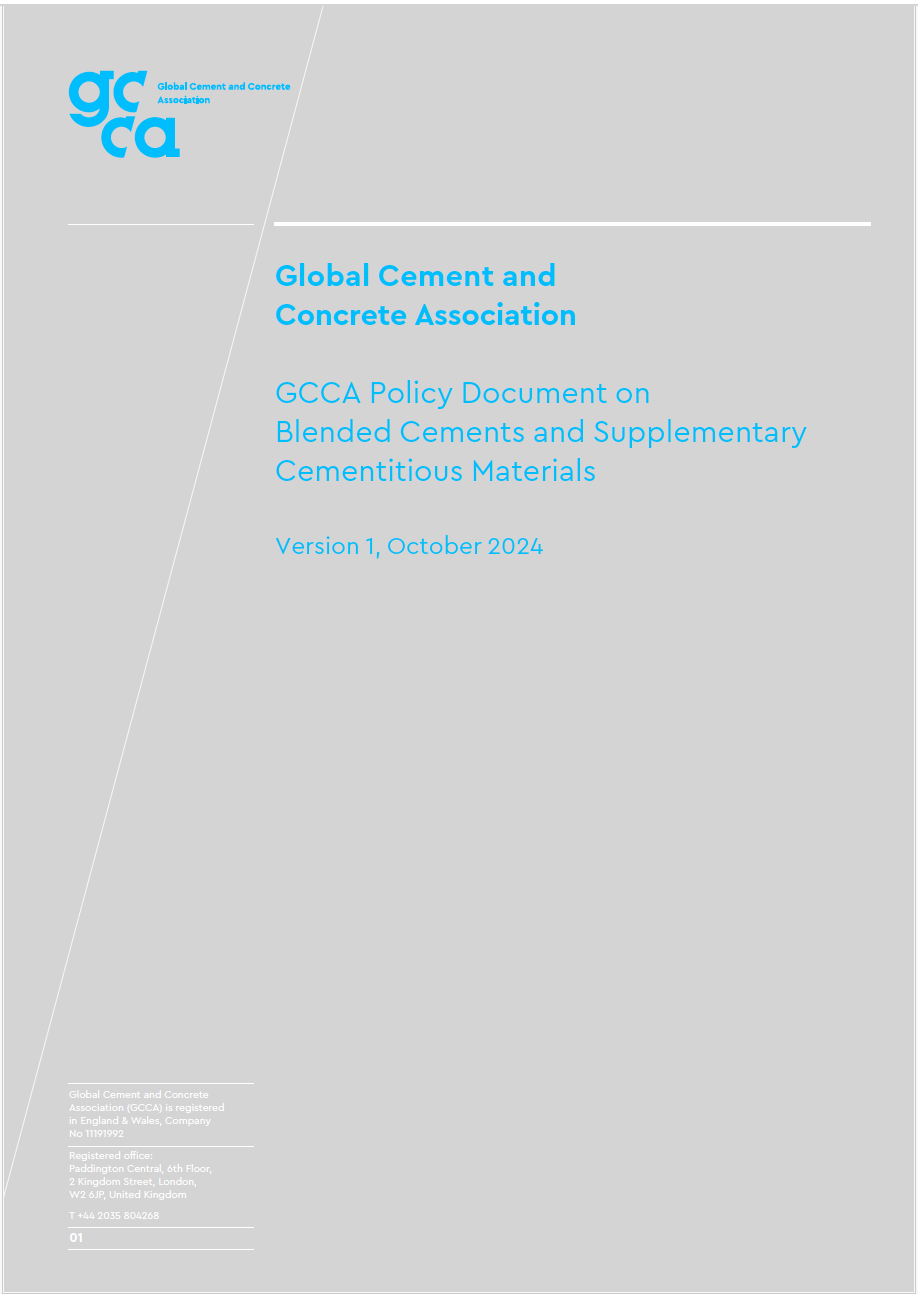
Co-Processing: Waste Treatment recovering energy and mineral content
Co-processing of waste in cement kilns is an established, environmentally sound, and highly regulated waste management technology. It is a valuable option for a wide range of societal wastes. In contrast to energy recovery, co-processing does not only recover the energy content of the waste, but also recycles its mineral content into high value cement and concrete products. Co-processing results in the reduction of fossil fuels and primary materials consumption as well as reduction in waste disposal.
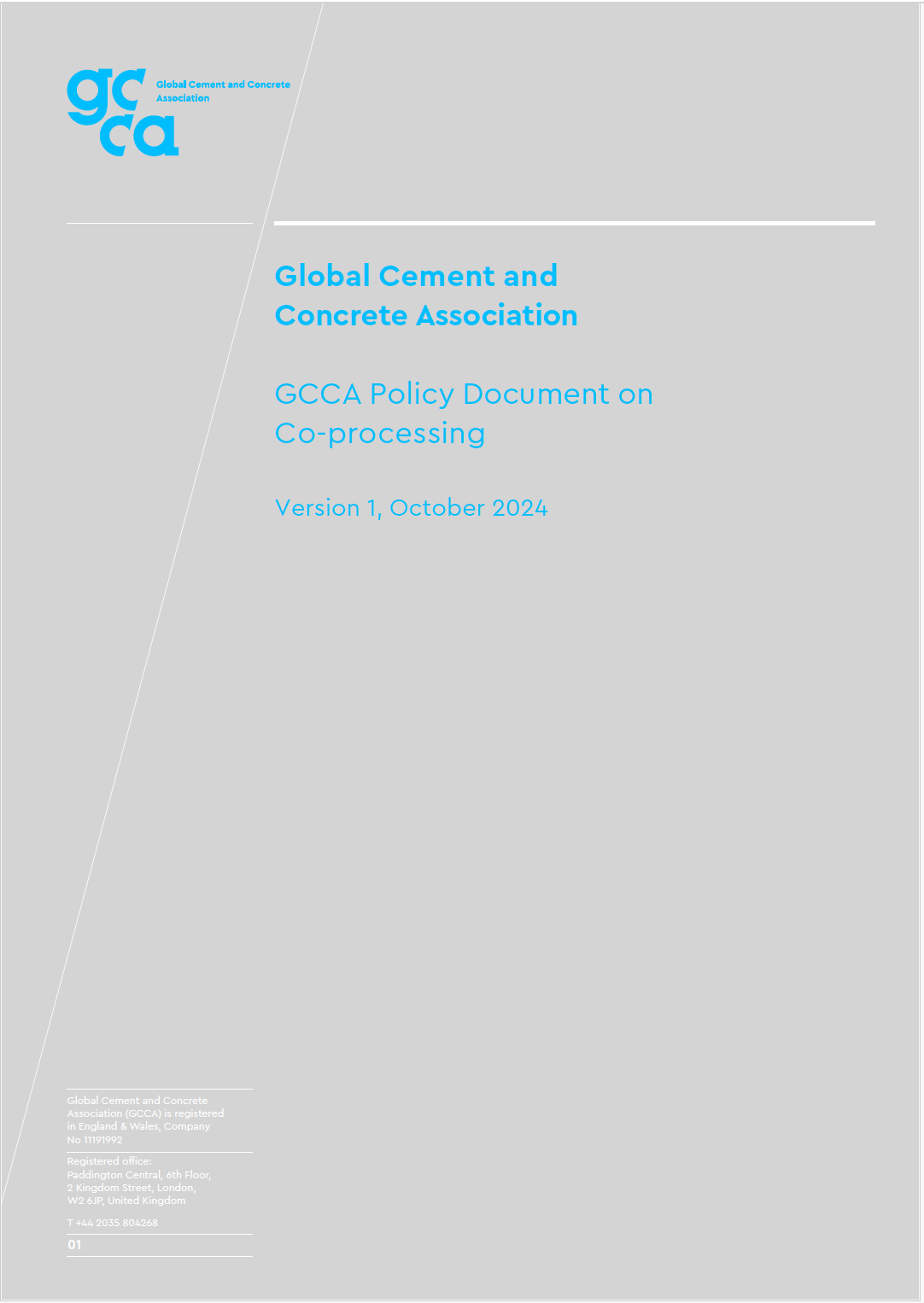
Carbon Capture, Utilisation and Storage
CCUS is a critical lever in the GCCA 2050 cement and concrete industry roadmap to net zero concrete. This is the case even with all other CO2 emission reduction technologies and new cement solutions being utilised.
Governments have a fundamental role, with action needed now, to facilitate development of carbon capture in the cement sector in this decade and scaling it up from 2030. Supportive policy frameworks are required in the areas of financing, carbon accounting, carbon pricing and demand for low carbon products. Governments need to help industry build the business case.
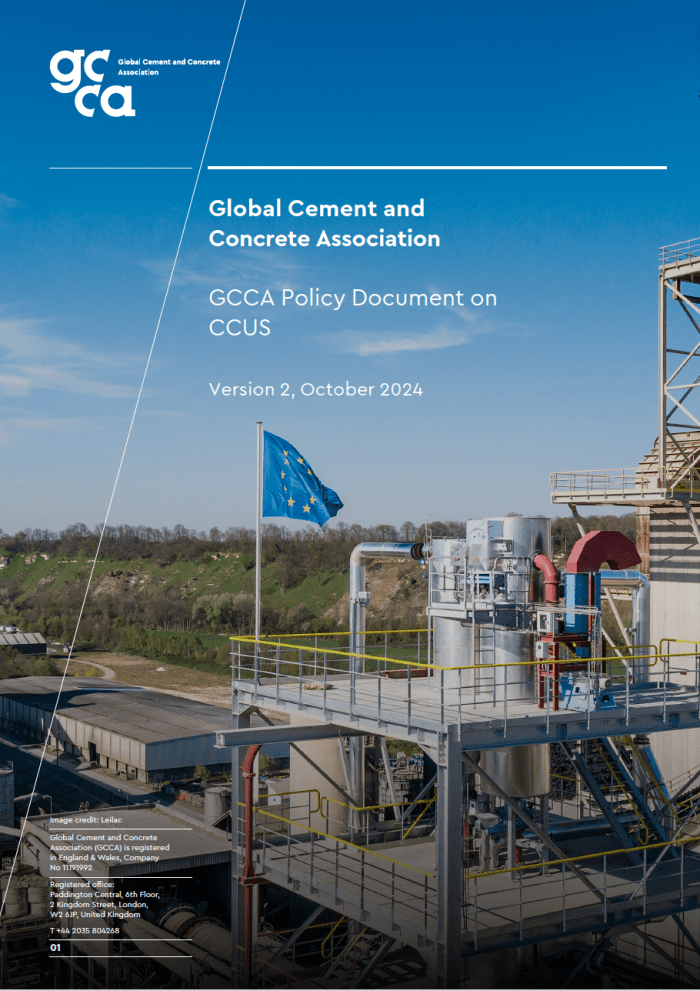
Carbon Pricing
Carbon pricing is a policy tool that captures the external costs of greenhouse gas (GHG) emissions and ties them to their sources in the form of a price on the carbon dioxide (CO2) emitted. Putting a price on carbon can create a financial driver to reduce emissions and encourage lower-carbon behaviour and can also raise money that can be used to finance low-carbon investment and climate adaptation.
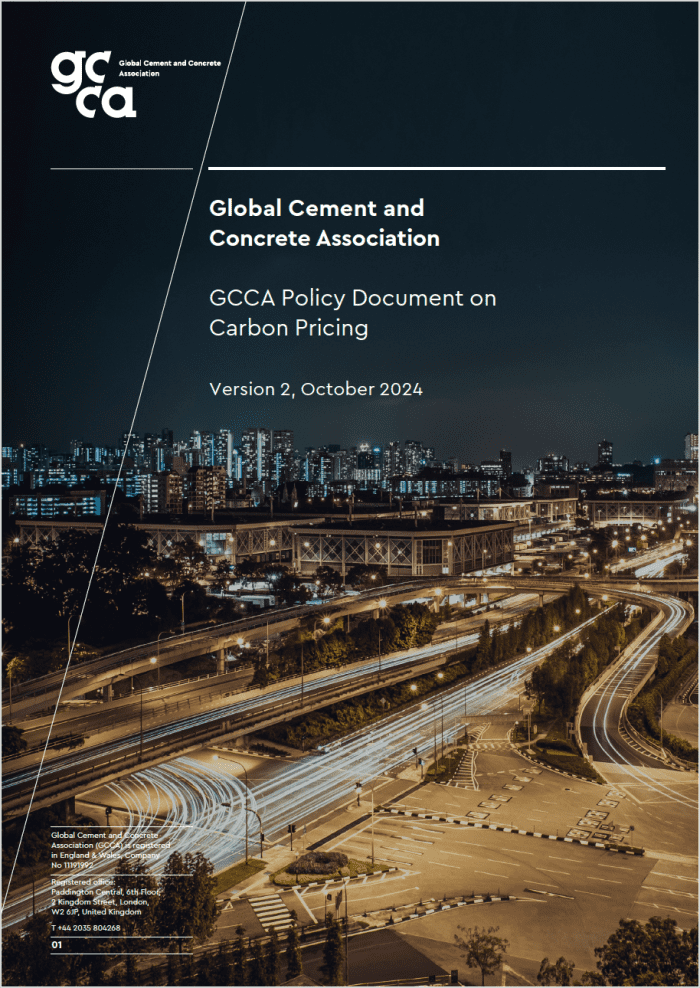
Low Carbon Product Procurement
GCCA and its members welcome the creation of market demand for low-carbon and near zero carbon construction and decarbonised value chains, and more specifically they welcome stimulation of demand for low-carbon and near zero cement and concrete products through public procurement policy.
Note: This document is being revised following the launch of “GCCA Low Carbon Ratings/Definitions for Cement” and “GCCA Low Carbon Ratings/Definitions for Concrete“.
Avoiding Bias in Policies that Impact Construction Material Choices
Sustainability must become a key criterion for the design and construction of the built environment of the future and be firmly embedded in policies, codes and regulations.
GCCA believes that the most sustainable outcomes can be achieved by policies, codes and regulations that avoid explicit or implicit preference for one construction material over another.
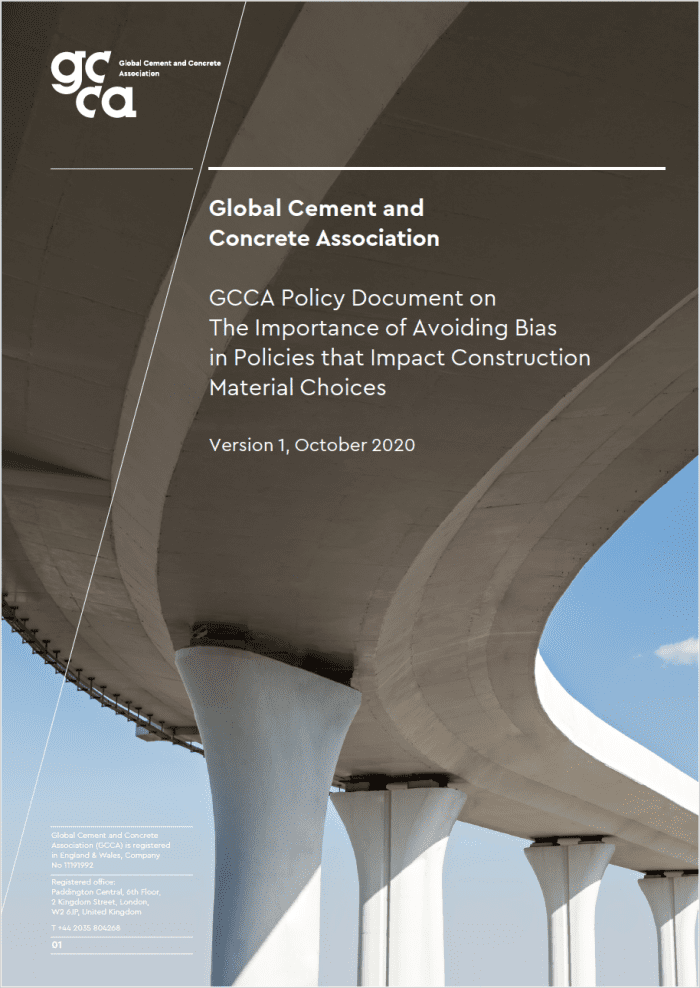
Biodiversity
GCCA members recognise the essential importance of Natural Capital to a sustainable world. To this end we have incorporated good practices on land stewardship and biodiversity into our Sustainability Charter and the principles of the Sustainable Development Goals into our actions.
GCCA members apply the mitigation hierarchy and the management of biodiversity risks and opportunities towards the achievement of Net Positive Impact in cement, concrete and aggregates operations. This means we can commit to ensuring ecosystem services are maintained in our direct operations, supply chain and for people and ecosystems who depend on them.
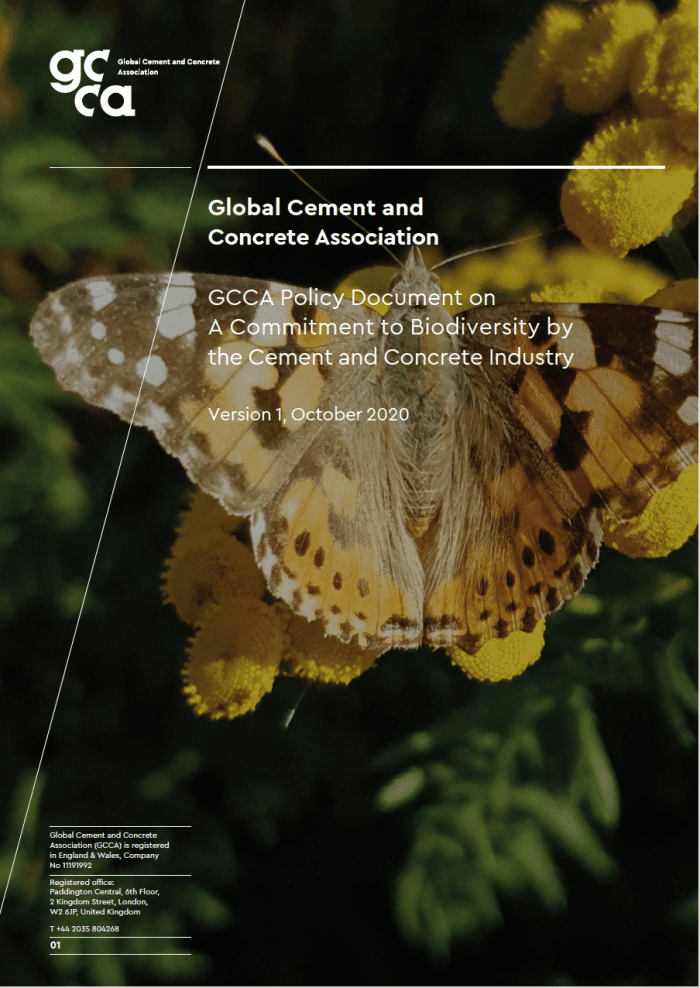
Circular Economy
GCCA Members recognise the importance of applying circular economy principles at all stages of the lifecycle of cement and concrete. To this end we have incorporated key actions in the GCCA Charter and Guidelines, and circular economy is fundamental to the GCCA Climate Ambition Statement and the forthcoming GCCA 2050 Roadmap for carbon neutral concrete. In some countries circularity is already enabled through a supportive policy framework and the industry has responded with widespread implementation of initiatives.
To maximise circularity globally, both in the sector and through the use of concrete, enabling policies, standards and regulations must become more widely adopted.
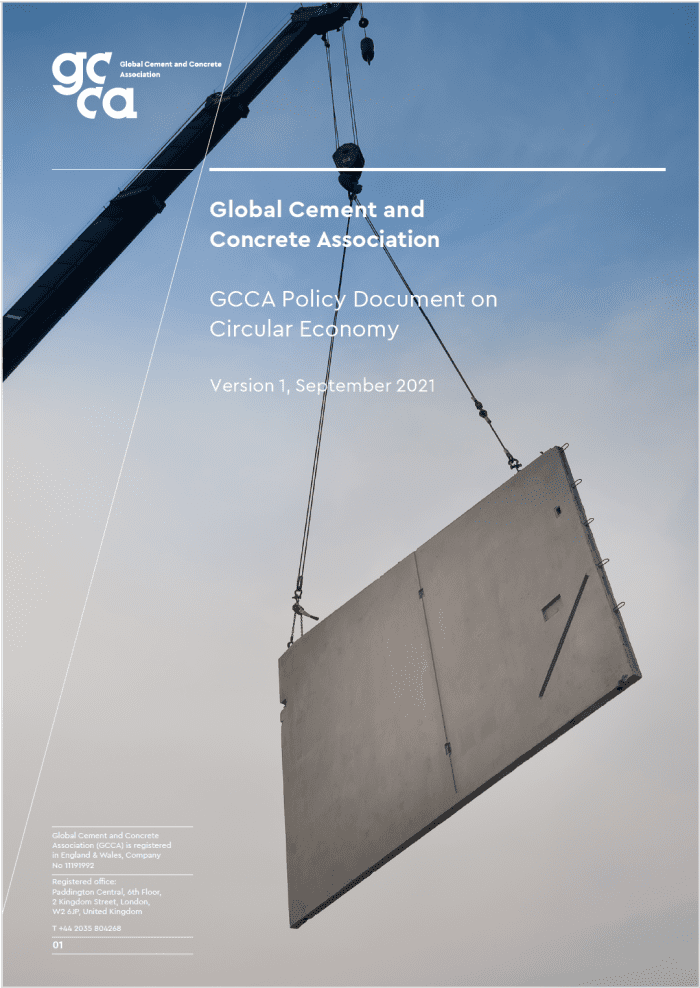
Creating Market Demand for Carbon Neutral Construction and Decarbonised Value Chains
Policy measures are needed to reduce both the embodied and operational emissions of buildings and structures. Concrete is a key enabler of the net zero transition, both through its own decarbonisation and through reducing emissions in the built environment and society (ranging from buildings to sustainable infrastructure).
Policy should incentivise innovation, lead to increased demand for low carbon solutions and facilitate the introduction of low carbon products on the market, whilst maintaining essential traditional criteria (e.g., technical performance, strength, durability, safety).
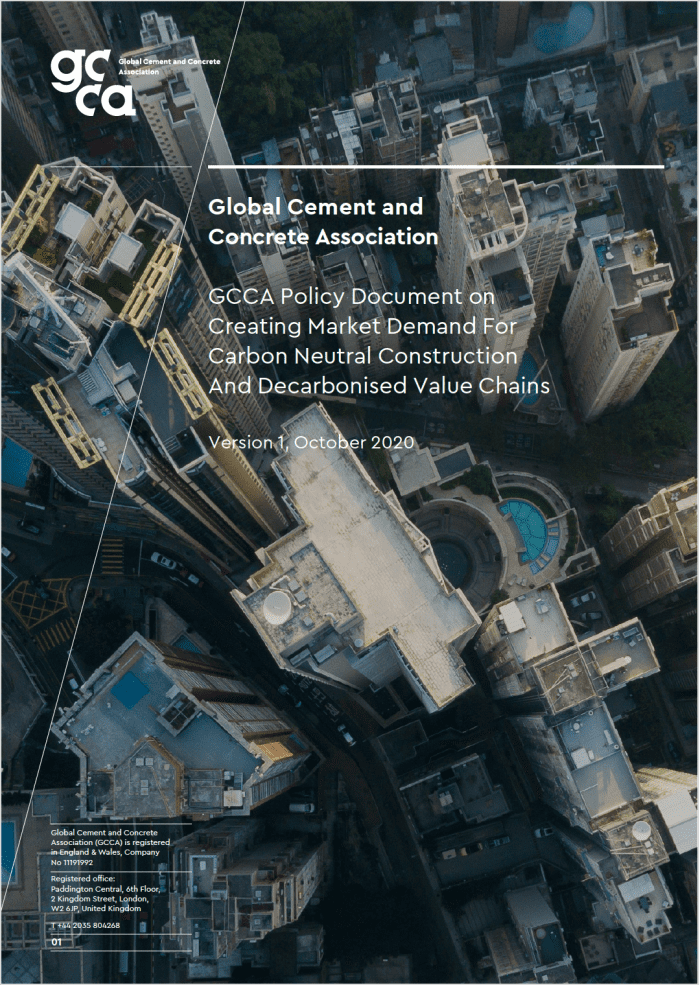
Making Low Carbon Cement Manufacturing Investable
Cement producers are committed to accelerating the elimination of fuel and process emissions, scaling-up advanced low carbon technologies and embedding circularity across our operations. But the sector cannot achieve this on its own. It needs tailored policy support and targeted public finance to lower the financial risks associated with the use of low carbon technologies and spread them more widely.
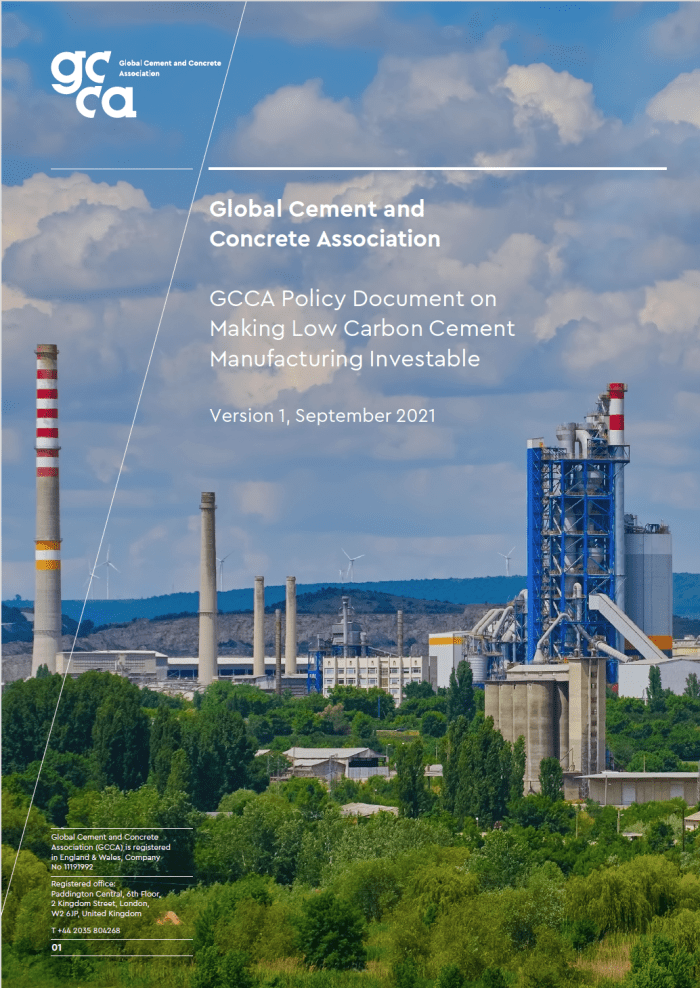
Providing The Infrastructure For Circular And Net Zero Manufacturing
Decarbonisation of necessary-to-abate sectors, such as cement and concrete, requires the right policy and legal framework on the one hand, and supportive infrastructure that will be shared across industrial sectors on the other. A shared understanding of the infrastructure needs for a decarbonised economy is key to enabling not just decarbonisation of the cement sector but industry and society in general.
Ultimately, deployment of advanced technologies such as CCUS at full scale will eliminate the process emissions of cement manufacturing and result in the future delivery of carbon net zero concrete for our world.
